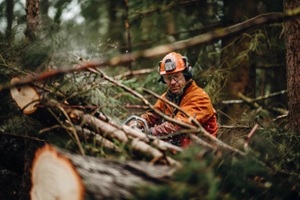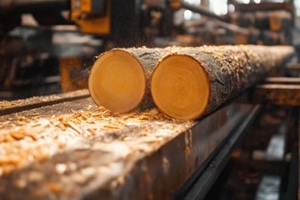
When forestry businesses approach the insurance coverage strategy they need for their work, it is common to focus primarily on the day-to-day, such as equipment, contracts, liability, and more. However, some companies might overlook planning for the rarer events that can threaten their business. Among these, few are as impactful as a major storm. Forestry insurance can help businesses financially recover from the impact of Mother Nature’s wrath.
This is why businesses must take charge of their insurance protection strategy or seek help from industry professionals. Companies should carefully evaluate their coverage to prevent costly surprises resulting from unforeseen events.
Here are some valuable lessons businesses learn after a major storm or other catastrophic event.
You May Be Missing Essential Policies
A major storm can quickly reveal gaps in coverage. A company might expect to maintain partial operations, albeit at a reduced pace, in the event of equipment failure. However, if a major storm brings flooding or fire that destroys the business’ machinery (or access to it), the company will, unfortunately, learn why policies such as business interruption insurance are essential.
When choosing forestry insurance, avoid basing decisions on the assumption that operations will remain trouble-free. In the forestry industry, damage and unexpected expenses are inevitable, not merely possible. Choose insurance policies with this reality in mind for assurance when issues arise.
Your Coverage May Not Be as Thorough as You Think
Businesses carrying a wide range of policy types may still not be sufficiently protected. A large or specialized piece of equipment might not fall within the scope of an equipment insurance policy, or a specific type of injury may not be covered under a basic workers’ compensation policy.
Always review the details of an insurance policy before committing. In forestry, some of the most common areas that may lack necessary coverage are equipment insurance and workers’ compensation. Equipment protection may exclude specific machinery over a certain weight or size limit.
Workers’ compensation might offer remuneration for fewer injuries in industries with higher-than-average risk. For instance, an employee may need to lose multiple fingers versus one finger to qualify. Check the protections included in the policy and the maximum potential compensation and adjust as necessary.
Mitigating Risk (and Costs) Is Within Your Control
Forestry businesses sometimes elect not to purchase particular insurance coverages due to budget limitations and other business needs. They may not be aware that they can take action to control the cost of their insurance policies. Although high-risk businesses usually pay higher costs for insurance, companies have options to reduce the amount they may owe.
- Invest in employee training to reduce the risk of injury or improper equipment operation.
- Install fireproofing and surveillance cameras at the business and its storage facilities.
- Operate equipment only according to manufacturer instructions and store tools properly.
These habits reduce the risk of an accident and demonstrate to insurers that the business is dedicated to safe operations. This can result in reduced premiums; the insurer may view the company as lower risk than others in the same industry.
Preparation Is Key

To properly match insurance coverage with business risks and assets, the company must understand what its workforce and property are worth. Invest in appraisals long before a major storm to know the full value of business assets. By doing so, a company knows that its insurance limit can cover the cost of repairs or replacements.
Preparation is also a significant factor in reducing the risk of a storm. Create a storm response plan and understand whether it is possible to save equipment, what should be prioritized, and how workers know it is time to leave the work site.
Get Forestry Insurance Before the Next Storm Hits
Major storms are an unpredictable fact of nature. However, they do not have to cause catastrophic financial damage to your forestry business. By learning from others in the industry who have weathered a storm unprepared, you can make smart decisions about organizing your insurance coverage, checking your limits, and expanding your protection where necessary.
The professionals at Burton & Company offer customized recommendations to address your business’ risks. Contact Burton & Company today for a personalized quote!

